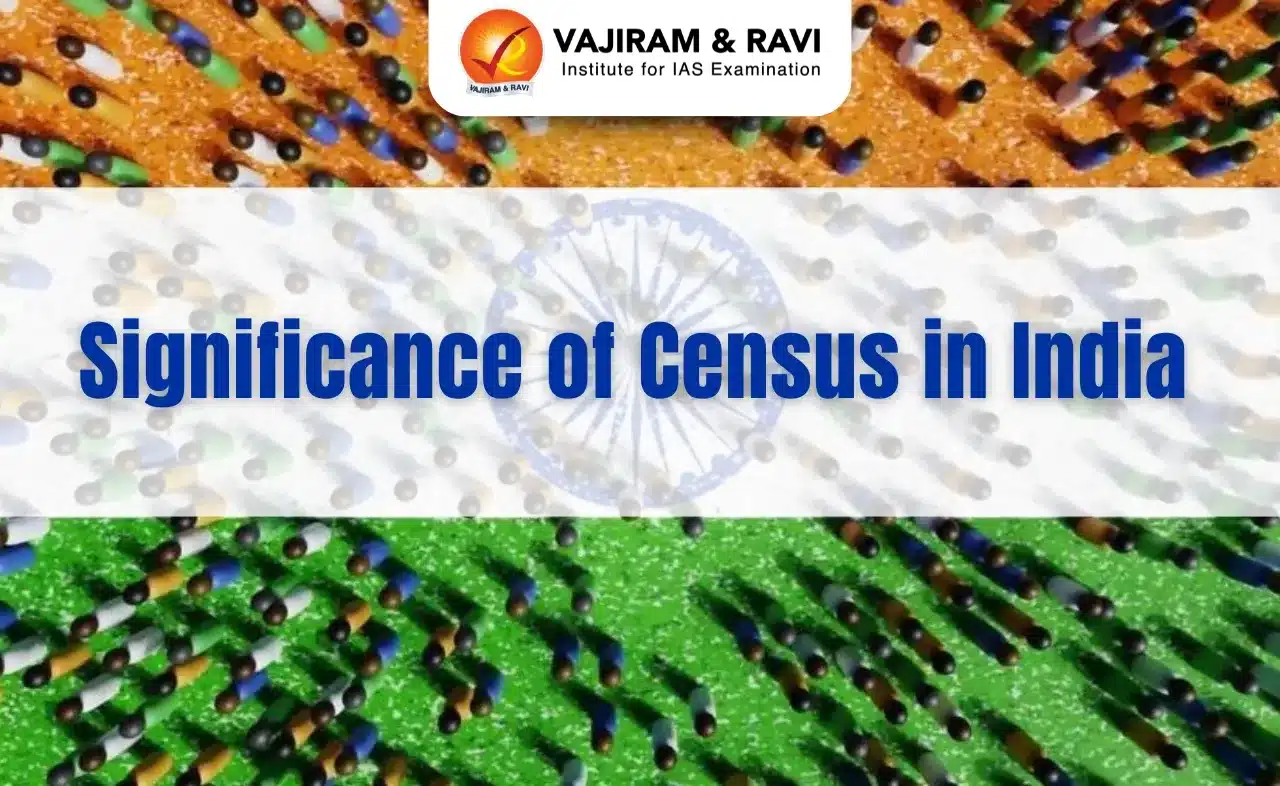What’s in today’s article?
- Why in news?
- What is National Crime Records Bureau (NCRB)?
- News Summary: NCRB 2022 report on crime in India
- What does the 2022 NCRB report say?
- Limitations to the data compiled by NCRB
Why in news?
- The National Crime Records Bureau (NCRB) released its annual report on crime in India for the year 2022.
- The report is a compilation of data on reported crime from across the country, and provides the big picture of broad trends in crime registration.
National Crime Records Bureau (NCRB)
- About
- NCRB is an Indian government agency (headquartered in New Delhi) established in 1986 and is part of the Ministry of Home Affairs (MHA), Government of India.
- It was set up based on the recommendation of the National Police Commission, 1977 and a Task force, 1985.
- It is responsible for collecting and analysing crime data (as defined by the Indian Penal Code (IPC) and Special and Local Laws).
- NCRB is an Indian government agency (headquartered in New Delhi) established in 1986 and is part of the Ministry of Home Affairs (MHA), Government of India.
- Function
- It also serves as a repository of such information to aid investigators in tracing crimes and criminals.
- It also acts as a national warehouse for the fingerprint records of Indian and foreign criminals, and assists in locating interstate criminals through fingerprint search.
- NCRB was entrusted with the responsibility for monitoring, coordinating and implementing the Crime and Criminal Tracking Network & Systems(CCTNS) project in the year 2009.
- In 2017, NCRB launched the National Digital Police Portal.
- The portal allows police officers to look for a criminal or suspect on the CCTNS database and gives citizens with services such as online complaint filing, etc.
- Reports published
- Along with the Crime in India report (oldest and most prestigious publication brought out by NCRB), It also publishes – Prisons Statistics India Report.
- Compilation of data for NCRB reports
- Crime in India reports, information is obtained from the police forces of 36 states and Union Territories.
- Similar data are furnished for 53 cities with populations exceeding 10 lakh each as per the 2011 Census, by respective state-level crime records bureaus.
News Summary: NCRB 2022 report on crime in India
What does the 2022 NCRB report say?
- Decline in the registration of cases
- In 2022, a total of 58,24,946 cognizable crimes comprising 35,61,379 Indian Penal Code (IPC) crimes and 22,63,567 Special & Local Laws (SLL) crimes were registered.
- This was a decline of 4.5% in the registration of cases over the second pandemic year, 2021.
- The crime rate has declined
- The crime rate, or crimes registered per lakh population, has declined from 445.9 in 2021 to 422.2 in 2022.
- This is seen as a better indicator, since absolute numbers on crime increase as the population increases.
- The crime rate, or crimes registered per lakh population, has declined from 445.9 in 2021 to 422.2 in 2022.
- Increase in crime against women
- 4,45,256 cases of crime against women were registered in 2022. This was an increase of 4% over the 2021 numbers.
- The largest share of crimes against women under IPC sections was registered under:
- Cruelty by Husband or His Relatives (31.4%),
- Kidnapping & Abduction of Women (19.2%), and
- Assault on Women with Intent to Outrage her Modesty (18.7%).
- Reporting of cybercrime increased significantly
- Reporting of cybercrime increased significantly by 24.4 percentage points compared to 2021, to 65,893 cases.
- Around 64.8% of registered cases were of fraud, followed by extortion (5.5%), and sexual exploitation (5.2%).
- An increase in suicides cases
- An increase of 4.2% was observed in suicides reported during 2022 (1,70,924 suicides) as compared to 2021.
- Family Problems (other than marriage-related problems) (31.7%), Marriage Related Problems (4.8%) and Illness (18.4%) have together accounted for 54.9% of total suicides in the country during the year 2022.
- The overall male-to-female ratio of suicide victims was 71.8 : 28.2.
- Headline trends in state-wise data
- The states/ UTs reporting the highest charge sheeting rate under IPC crimes are Kerala (96.0%), Puducherry (91.3%), and West Bengal (90.6%).
- This is the percentage of cases in which the police reached the stage of framing charges against the accused, out of the total true cases (where a charge sheet was not laid but a final report submitted as true, plus the total cases charge sheeted).
Limitations to the data compiled by NCRB
- Data not reflective of actual occurrence of crime
- The NCRB report underlines that the data record the incidence of registered crime, not the actual occurrence of crime.
- So, when reported crimes against women in Delhi rose significantly in the aftermath of the 2012 bus gangrape case, it may have been a reflection of increased awareness about the need for registering crimes.
- Limitations due to Principal Offence Rule
- The NCRB follows what is known as the Principal Offence Rule.
- This means that among the many offences registered in a single FIR, the crime that attracts the most severe punishment is considered as the counting unit.
- Thus, ‘Murder with Rape’ would be counted as ‘Murder’, not rape — which would result in an undercounting of the crime of rape.
- Inefficiency at the local level may impact the accuracy of the report
- Since the NCRB report is only a compilation of data submitted at the local level, inefficiencies or gaps in data at that level have an impact on the accuracy of the report.
- E.g., the FIR would be recorded by a policeman or policewoman who visits the suicide spot.
- The reason that is recorded for the suicide would depend entirely on how the policeman or policewoman understands the situation.
- Since the NCRB report is only a compilation of data submitted at the local level, inefficiencies or gaps in data at that level have an impact on the accuracy of the report.
- Socio-economic causative factors are not captured
- The NCRB itself notes that the socio-economic causative factors or reasons of crimes are not being captured by the Bureau.
- Other factors affecting the data
- Because of a range of reasons, including the fear of an uncooperative or a hostile response from the police, certain groups may not be willing to come forward and register cases.
- And a shortage of police officers or unfilled vacancies in the relevant posts at the local level may hinder the collection of data.
Q1) What is Crime and Criminal Tracking Network & Systems (CCTNS)?
The Crime and Criminal Tracking Network & Systems (CCTNS) is an Indian government project that aims to improve the efficiency of policing.
Q2) What is National Digital Police Portal?
The National Digital Police Portal (NDPP) is a web-based policing project of the Indian government. The portal was launched on August 21, 2017 by the National Crime Records Bureau (NCRB). The NDPP is a smart policing initiative of the Ministry of Home Affairs.
Source: How to read the NCRB 2022 report on crime in India | The Hindu | Hindustan Times
Last updated on June, 2025
→ UPSC Notification 2025 was released on 22nd January 2025.
→ UPSC Prelims Result 2025 is out now for the CSE held on 25 May 2025.
→ UPSC Prelims Question Paper 2025 and Unofficial Prelims Answer Key 2025 are available now.
→ UPSC Calendar 2026 is released on 15th May, 2025.
→ The UPSC Vacancy 2025 were released 1129, out of which 979 were for UPSC CSE and remaining 150 are for UPSC IFoS.
→ UPSC Mains 2025 will be conducted on 22nd August 2025.
→ UPSC Prelims 2026 will be conducted on 24th May, 2026 & UPSC Mains 2026 will be conducted on 21st August 2026.
→ The UPSC Selection Process is of 3 stages-Prelims, Mains and Interview.
→ UPSC Result 2024 is released with latest UPSC Marksheet 2024. Check Now!
→ UPSC Toppers List 2024 is released now. Shakti Dubey is UPSC AIR 1 2024 Topper.
→ Also check Best IAS Coaching in Delhi























